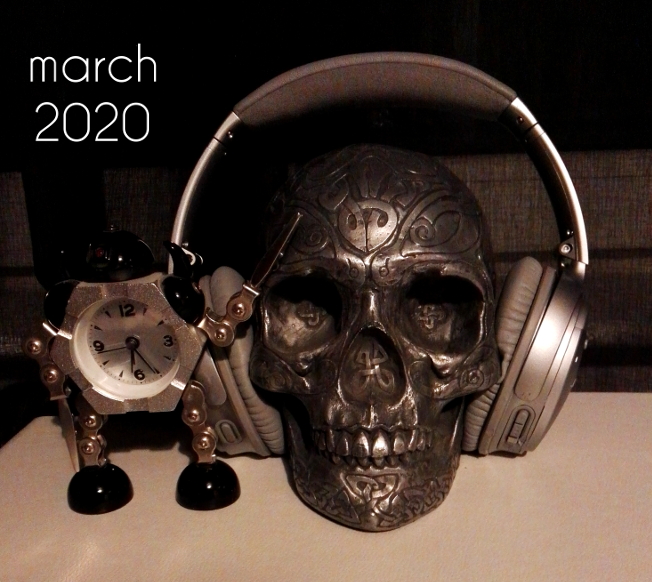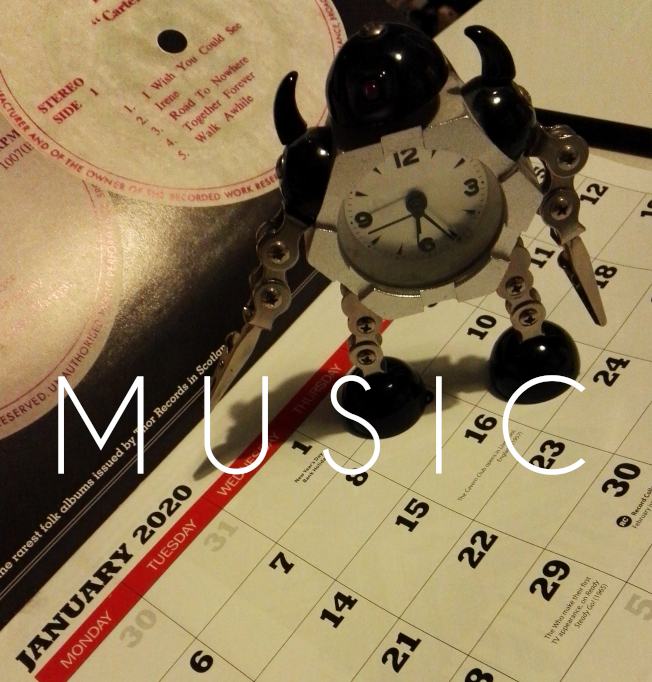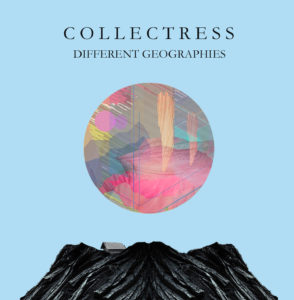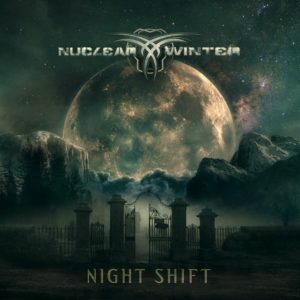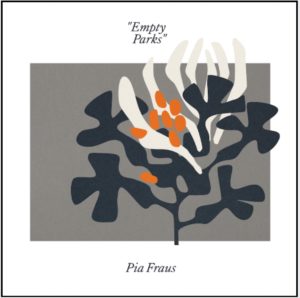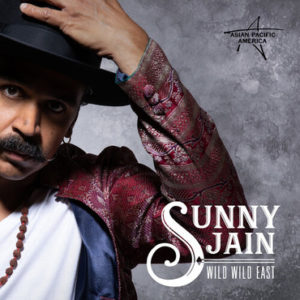This is another roundup of new music that seemed interesting enough to me to check out. Not, you might think, an ideal time to be releasing a new album; and yet, with the majority of music sales, despite the resurgence of vinyl, still being digital and with the majority of people currently being at home, why not? So here are some things. The release dates were I think still good at the time of writing, but no doubt may be subject to change, as – paradoxically – so many things are in this weird limbo. But enough of that:
Ande
Vossenkuil
Self-Released
Release date: 3 April 2020

Ande from Belgium is a one-man (Jim Christiaens) black metal project – not exactly a rarity, but Vossenkuil is an extremely well-realised album. The music is pretty much what you’d expect from the artwork; atmospheric and melancholy, although it’s fairly heavy and raw too. There are obvious comparisons with bands like Wolves in the Throne Room and Drudkh, but what it reminded me of the most (especially perhaps because of its thick, mournful guitar tone) is Forestheart by Marblebog; which I think is hugely underrated and therefore mean as a compliment, but anyway, that’s the general kind of nature-nostalgia-darkness area Ande is working in. Every aspect from the overall sound to the raw vocals is good, with the excellent drums making it a bit better than the usual woods ‘n’ lakes ‘n; misery black metal album. Ande website: https://andeband.wordpress.com/
Funeral Bitch
The 80’s demos
vic records
Release date: out now
 A foolish name, you might think; and yet there have been no less than three different bands called Funeral Bitch. This is the first and best of the three, the one formed by Paul Speckmann in 1986-8 between different incarnations of the much better known Master. Funeral Bitch were much in the same vein; extremely fast and rough (though still anthemic) death/thrash, with Speckmann’s hoarse bellowing a bit too prominent in the thin mix. That said, the demos are imbued with a real raw vitality that could arguably have been lost with the kind of production favoured by the big-name thrash bands of the era. It’s a real time capsule of the more extreme end of the 80s thrash scene and there’s a fair amount of intentional silliness too; a key but often forgotten feature of era. Interestingly, the guitarist is Alex Olvera, better known for his tenure as bassist with mid-level speed metal band Znöwhite around the same time. Only essential for Master fans, but generally fun, even if the live tracks are (appropriately) ‘rough as guts’ as they say down under.
A foolish name, you might think; and yet there have been no less than three different bands called Funeral Bitch. This is the first and best of the three, the one formed by Paul Speckmann in 1986-8 between different incarnations of the much better known Master. Funeral Bitch were much in the same vein; extremely fast and rough (though still anthemic) death/thrash, with Speckmann’s hoarse bellowing a bit too prominent in the thin mix. That said, the demos are imbued with a real raw vitality that could arguably have been lost with the kind of production favoured by the big-name thrash bands of the era. It’s a real time capsule of the more extreme end of the 80s thrash scene and there’s a fair amount of intentional silliness too; a key but often forgotten feature of era. Interestingly, the guitarist is Alex Olvera, better known for his tenure as bassist with mid-level speed metal band Znöwhite around the same time. Only essential for Master fans, but generally fun, even if the live tracks are (appropriately) ‘rough as guts’ as they say down under.
Kariti
Covered Mirrors
Aural Music
Release date: 17 April
 Kariti is a Russian-Italian singer of dark folk music and, after an extremely peculiar and archaic-sounding voices-only intro, Covered Mirrors becomes an album of moody semi-acoustic songs which are not especially folk-sounding, but are very pretty indeed. The guitar sound is crisp and almost tangible, and the vocals (mainly in English) are clear and mournful, as befits the album’s themes of ‘death and parting’. It’s a beautifully grave and austere record, with an intimate quality that (especially through headphones) brings the listener extremely close to the performance, while remaining emotionally remote and unreachable: a perfect album for a time of quarantine, if not one that will cheer anyone up.
Kariti is a Russian-Italian singer of dark folk music and, after an extremely peculiar and archaic-sounding voices-only intro, Covered Mirrors becomes an album of moody semi-acoustic songs which are not especially folk-sounding, but are very pretty indeed. The guitar sound is crisp and almost tangible, and the vocals (mainly in English) are clear and mournful, as befits the album’s themes of ‘death and parting’. It’s a beautifully grave and austere record, with an intimate quality that (especially through headphones) brings the listener extremely close to the performance, while remaining emotionally remote and unreachable: a perfect album for a time of quarantine, if not one that will cheer anyone up.
Kool Keith x Thetan
Space Goretex
Anti-Corporate Music
Release date: April 10th
 Alternately really great and very silly indeed, the sci-fi theme/concept behind Space Goretex sometimes gets in the way of the music. At its best the marriage of the unusual (but mostly surprisingly low key) musical textures of Thetan (beats, bass, synth, theremin, rather than the usual powerviolence) with hip-hop legend Kool Keith’s iconic delivery makes for a unique, distinctive sound. It’s something of a landmark album too, featuring Keith in all of his guises (Dr. Octagon, Dr. Dooom and Black Elvis), but although vocally he’s on superb form, the lyrics more often than not tend to be a bit puerile, though perfectly delivered with his usual flawless fluency. As sound, it’s a brilliantly realised collection of sophisticated and moody hip-hop, but unless sexually-oriented comicbook themes resonate deeply with you that’s mostly all it is; but as such it’s a pretty good album.
Alternately really great and very silly indeed, the sci-fi theme/concept behind Space Goretex sometimes gets in the way of the music. At its best the marriage of the unusual (but mostly surprisingly low key) musical textures of Thetan (beats, bass, synth, theremin, rather than the usual powerviolence) with hip-hop legend Kool Keith’s iconic delivery makes for a unique, distinctive sound. It’s something of a landmark album too, featuring Keith in all of his guises (Dr. Octagon, Dr. Dooom and Black Elvis), but although vocally he’s on superb form, the lyrics more often than not tend to be a bit puerile, though perfectly delivered with his usual flawless fluency. As sound, it’s a brilliantly realised collection of sophisticated and moody hip-hop, but unless sexually-oriented comicbook themes resonate deeply with you that’s mostly all it is; but as such it’s a pretty good album.
https://youtu.be/cyHD4q3hGzU
Manes
Young Skeleton
Aftermath Music
Release date: April 18th
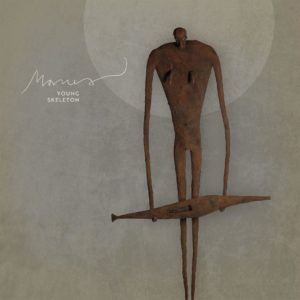 Always a surprise to find that non-mainstream musicians still release singles, but that’s what Manes are doing; and, like their last album, the superb Slow Motion Death Sequence it’s black metal in feeling only; musically the title track is a kind of eccentric and brooding widescreen gothic rock (I guess; it reminded me a bit of the Planet Caravan type early Black Sabbath ballads and musically but definitely not vocally a little bit of Fields of the Nephilim; there’s no electronic element on this one). It’s beautifully recorded, the title track warm and limpid but with an undertone of unease that builds throughout. The B side (is that still what it is for a digital release?) is Mouth of the Volcano, an atmospheric doomy semi-electronic chug built around a strangely familiar spoken word section that can’t place and featuring Asgeir Hatlan (last heard in Manes on 2014’s Be All, End All) and some spooky Diamanda Galas-ish vocals from Anna Murphy (ex-Eluveitie) and Ana Carolina Skaret. An unsettling but very listenable pair of songs and so a single worth releasing; and with beautiful artwork too.
Always a surprise to find that non-mainstream musicians still release singles, but that’s what Manes are doing; and, like their last album, the superb Slow Motion Death Sequence it’s black metal in feeling only; musically the title track is a kind of eccentric and brooding widescreen gothic rock (I guess; it reminded me a bit of the Planet Caravan type early Black Sabbath ballads and musically but definitely not vocally a little bit of Fields of the Nephilim; there’s no electronic element on this one). It’s beautifully recorded, the title track warm and limpid but with an undertone of unease that builds throughout. The B side (is that still what it is for a digital release?) is Mouth of the Volcano, an atmospheric doomy semi-electronic chug built around a strangely familiar spoken word section that can’t place and featuring Asgeir Hatlan (last heard in Manes on 2014’s Be All, End All) and some spooky Diamanda Galas-ish vocals from Anna Murphy (ex-Eluveitie) and Ana Carolina Skaret. An unsettling but very listenable pair of songs and so a single worth releasing; and with beautiful artwork too.
Midwife
Forever
The Flenser
Release date: 10 April
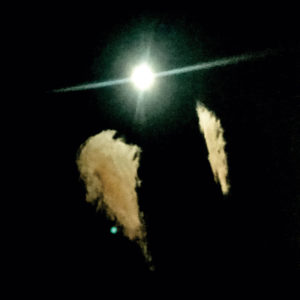 More solemn, downbeat but mostly very pretty music. I had never heard Midwife (the solo project of Madeline Johnston) before; on this album at least, it’s a bare, guitar-based sound with some ambient electronic elements, sort of shoegaze-y but not. The nearest comparison I can think of (not that anyone asked for one) is Codeine circa Frigid Stars. Forever was inspired by the unexpected loss of a friend and the music is as fragile and mournful as you’d expect. The sound is warm, clear and intimate-sounding – aside from the vocals, which are distanced by a strange spacey, reverb effect; perhaps for the best as the raw emotion is rendered slightly remote and universal, rather than immediate and personal. It’s clearly not an album for all moods: although the closing track S.W.I.M. speeds up to a Jesus and Mary Chain-esque plod, Forever is consistently slow and elegiac and nothing really lifts it out of its furrow of sadness: but beautiful for all that.
More solemn, downbeat but mostly very pretty music. I had never heard Midwife (the solo project of Madeline Johnston) before; on this album at least, it’s a bare, guitar-based sound with some ambient electronic elements, sort of shoegaze-y but not. The nearest comparison I can think of (not that anyone asked for one) is Codeine circa Frigid Stars. Forever was inspired by the unexpected loss of a friend and the music is as fragile and mournful as you’d expect. The sound is warm, clear and intimate-sounding – aside from the vocals, which are distanced by a strange spacey, reverb effect; perhaps for the best as the raw emotion is rendered slightly remote and universal, rather than immediate and personal. It’s clearly not an album for all moods: although the closing track S.W.I.M. speeds up to a Jesus and Mary Chain-esque plod, Forever is consistently slow and elegiac and nothing really lifts it out of its furrow of sadness: but beautiful for all that.
Nyrst
Orsök
Dark Essence Records
Release date: 24 April
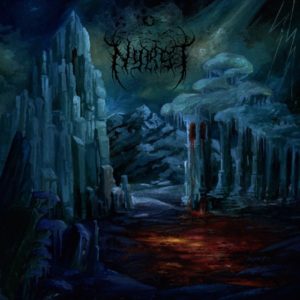 More black metal, this time from Iceland. Pretty standard (in a good way), polished but not symphonic black metal, modern but very much influenced by the classic Scandinavian bands (maybe more the second-and-a-half wave, like Kampfar than the classic Mayhem-Darkthrone-Burzum axis) it’s all very well put together and has plenty of muscle and melody. Two things save it from just being yet more (and there is a lot of it) proficient ‘grim & frostbitten’ black metal – firstly, some strange and very Icelandic anthemic moments; I say very Icelandic only because those moments remind me a bit of some of the epic, windswept bits in Solstafir’s music. Although recommended by the label for fans of fellow Icelanders Misþyrming, Nyrst, though inhabiting more or less the same kind of sub-genre, definitely have their own sound and style. (I highly recommend Misþyrming’s Algleymi by the way). The second thing that sets Nyrst aside is the dramatic, not to say eccentric voice of Snæbjörn, which goes above and beyond the standard raw black metal vocals in a highly expressive way that sometimes reminds me of one of my favourite harsh singers, Ildanach of Absentia Lunae.
More black metal, this time from Iceland. Pretty standard (in a good way), polished but not symphonic black metal, modern but very much influenced by the classic Scandinavian bands (maybe more the second-and-a-half wave, like Kampfar than the classic Mayhem-Darkthrone-Burzum axis) it’s all very well put together and has plenty of muscle and melody. Two things save it from just being yet more (and there is a lot of it) proficient ‘grim & frostbitten’ black metal – firstly, some strange and very Icelandic anthemic moments; I say very Icelandic only because those moments remind me a bit of some of the epic, windswept bits in Solstafir’s music. Although recommended by the label for fans of fellow Icelanders Misþyrming, Nyrst, though inhabiting more or less the same kind of sub-genre, definitely have their own sound and style. (I highly recommend Misþyrming’s Algleymi by the way). The second thing that sets Nyrst aside is the dramatic, not to say eccentric voice of Snæbjörn, which goes above and beyond the standard raw black metal vocals in a highly expressive way that sometimes reminds me of one of my favourite harsh singers, Ildanach of Absentia Lunae.
https://www.youtube.com/watch?v=X7KqqGRe8-I
Ols
Widma
Pagan Records
Release date: 17 April
 And another one-woman folk project. Ols (Polish singer and multi-instrumentalist Anna Maria Oskierko) is very different from Kariti though, and Widma is a primitive, ritualistic sounding album with none of Covered Mirrors‘s accessible, almost pop sheen. Widma does sound traditional, but it’s more akin to Wardruna and the archaeological end of pagan folk music than the glossy Clannad-ish kind recently heard on the latest Myrkur album. This is, by contrast, pleasantly droning and primal (and in that respect reminds me of an album I bought via MySpace many years ago by Eliwagar), but still full of lovely melodic bits and the kind of mysterious forest-y atmosphere you’d hope for from an album with this cover. Although solemn and archaic, it’s probably the least melancholy listen here with the very notable exception of Kool Keith.
And another one-woman folk project. Ols (Polish singer and multi-instrumentalist Anna Maria Oskierko) is very different from Kariti though, and Widma is a primitive, ritualistic sounding album with none of Covered Mirrors‘s accessible, almost pop sheen. Widma does sound traditional, but it’s more akin to Wardruna and the archaeological end of pagan folk music than the glossy Clannad-ish kind recently heard on the latest Myrkur album. This is, by contrast, pleasantly droning and primal (and in that respect reminds me of an album I bought via MySpace many years ago by Eliwagar), but still full of lovely melodic bits and the kind of mysterious forest-y atmosphere you’d hope for from an album with this cover. Although solemn and archaic, it’s probably the least melancholy listen here with the very notable exception of Kool Keith.
https://www.youtube.com/watch?v=zLwMN9PX47U
Weserbergland
Am Ende der Welt
Apollon Records
Release date 24 April
 A contrast to everything else here, Norwegian collective Weserbergland’s second album consists of one 42 minute track, but it’s not the krautrock–influenced prog of their Can/Tangerine Dream-flavoured debut. Instead, it’s a chaotic but weirdly coherent kind of collage which consists of performances on conventional-ish instruments: guitar/strings/sax/turntables, cut up, messed about with and reassembled into a kind of melancholy, cinematic symphony. The strange, unpredictable stuttering percussion seems like it should disrupt the flow of the piece, but somehow the jerkiness becomes part of the mood and it all flows perfectly, if not in a straight line. It’s really not like anything else I’ve heard, but reminds me a little of Masahiko Satoh and the Soundbreakers’ 1971 classic avant-garde jazz-prog-whatever album Amalgamation in its sheer ear-defeating unclassifiable-ness. I’m sure it won’t go down in history as such, but this may be a definitively 2020 release.
A contrast to everything else here, Norwegian collective Weserbergland’s second album consists of one 42 minute track, but it’s not the krautrock–influenced prog of their Can/Tangerine Dream-flavoured debut. Instead, it’s a chaotic but weirdly coherent kind of collage which consists of performances on conventional-ish instruments: guitar/strings/sax/turntables, cut up, messed about with and reassembled into a kind of melancholy, cinematic symphony. The strange, unpredictable stuttering percussion seems like it should disrupt the flow of the piece, but somehow the jerkiness becomes part of the mood and it all flows perfectly, if not in a straight line. It’s really not like anything else I’ve heard, but reminds me a little of Masahiko Satoh and the Soundbreakers’ 1971 classic avant-garde jazz-prog-whatever album Amalgamation in its sheer ear-defeating unclassifiable-ness. I’m sure it won’t go down in history as such, but this may be a definitively 2020 release.

